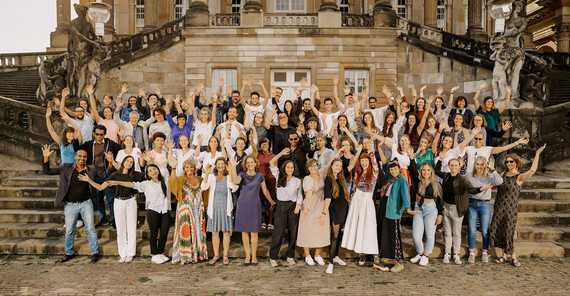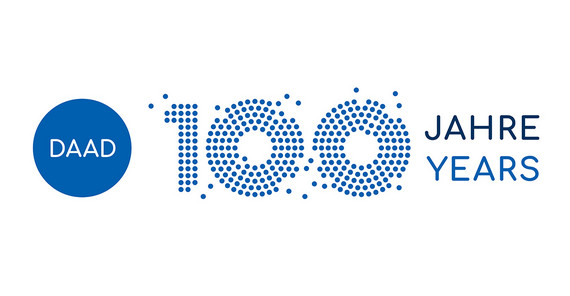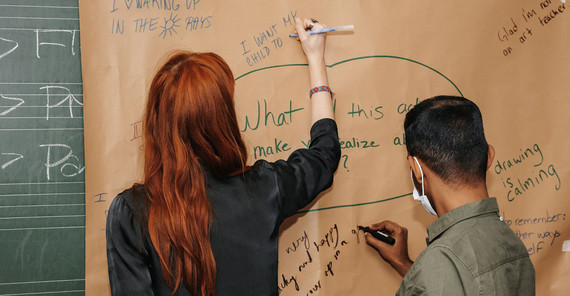Mobility studies have shown that teaching degree students are less likely to spend part of their studies abroad than students of other subjects. "Some fear that this could delay their graduation or that they could lose the job they use to earn a living during this time. Others have family commitments or work in educational institutions alongside their studies in order to gain additional practical experience for their future careers," says ZeLB Director Prof. Dr. Andreas Borowski, who heads the DAAD project. “That is why we also want to enable these students to spend short periods at partner universities and German schools abroad."
A good example of how this can work was provided by the Didactics of Mathematics working group, which traveled to Reykjavik with students to exchange ideas with Icelandic teachers as well as students and faculty from the University of Iceland. They learned about the Thinking Classroom concept during work shadowing in secondary schools and took part in courses at the university. They also designed two hybrid workshops on the topics of "Language in mathematics lessons" and "Geometry", in which the Icelandic students could participate.
Short stays abroad are also a good way to complete the mandatory internship in “pedagogical-psychological fields of action”, says Borowski, adding that concrete possibilities for this are being examined. For example, in the global network of 16 German partner schools stretching from Jakarta to Toronto, in which master's students in teaching degrees are already able to complete their practical semester.
Just as important as study abroad periods and internships abroad are internationalization opportunities "at home", project coordinator Stefanie Goertz emphasizes, citing a cooperation with the Leibniz-Gymnasium in Potsdam and the German Rahn School in Cairo. In this case, teaching degree students organized the international project week "1 Week for Future" on the topic of water for all eighth grade classes, not only training intercultural skills, but also pursuing important goals of education for sustainable development. And not without reason, as the DAAD project for teacher training in Potsdam bears the title "UP Network for Sustainable Teacher Education" and is based on the UN Sustainable Development Goals, which can only be achieved in the global community.
In 2022, the ZeLB hosted an international summer school for the first time to discuss how the UN goals can be integrated into schools and lessons. What knowledge, attitudes, and skills do learners need to assume responsibility as global citizens in a global society? How can younger generations be empowered to help shape a more inclusive and sustainable future? And what role do individual subjects and the school community as a whole play in this? 60 teaching degree students from Germany and abroad took part in the summer school and developed concrete project ideas with various didactics departments.
The summer school also made it clear that one of the most important prerequisites for intercultural understanding are language skills. In the DAAD project, the departments of German as a Foreign or Second Language and Inclusive Didactics of German organized two seminars with German schools abroad in Jakarta and Bogotá. The students not only took advantage of the rare opportunity to work with pupils from abroad, but also the chance to gain international experience in digital teaching practice.
Teaching degree students in foreign language programs are generally more open to international exchange, says Andreas Borowski. “From now on, we also want to motivate students of other subjects for this, especially in the natural sciences," the physics didactics expert adds. One of the challenges he sees is that many teaching degree students once learned at schools where the proportion of migrants was rather low. This makes it all the more important to open their minds to intercultural learning.
The ZeLB network with universities and schools abroad will be further expanded for this purpose. Just last year, a delegation from Potsdam visited the University of Education Winneba in Ghana and the German International School in Accra. There is also a new cooperation with the State University of New York (SUNY) Cortland, which is based on close collaboration between teaching degree students from the Department of History in Cortland and the Department of English and American Studies in Potsdam and ranges from virtual exchanges on issues of migration, diversity, and global citizenship to summer schools, guest lectureships, and co-teaching activities.
In the second funding phase of the DAAD project, which has now started, the goal is to interlink such intercultural teaching and learning experiences even further with topics of education for sustainable development, with a stronger focus on diversity, explains coordinator Stefanie Goertz. It is important to note that in teacher training, imparting future skills is becoming more and more relevant, emphasizes Andreas Borowski, i.e., key technological and digital skills, creativity and initiative, the ability to change and implement sustainable solutions. There will also be an exchange of ideas on this topic with other teacher training institutions that are funded by the DAAD program.
University of Potsdam celebrates 100th anniversary of the DAAD
The year 2025 marks an impressive anniversary – the DAAD is celebrating 100 years of international academic exchange! The University of Potsdam is proud to be part of this important success story. The DAAD has not only opened doors for countless students, researchers, and experts worldwide, but has also actively contributed to building bridges between countries, cultures, and educational systems. In this series of articles, we tell you all about it.




